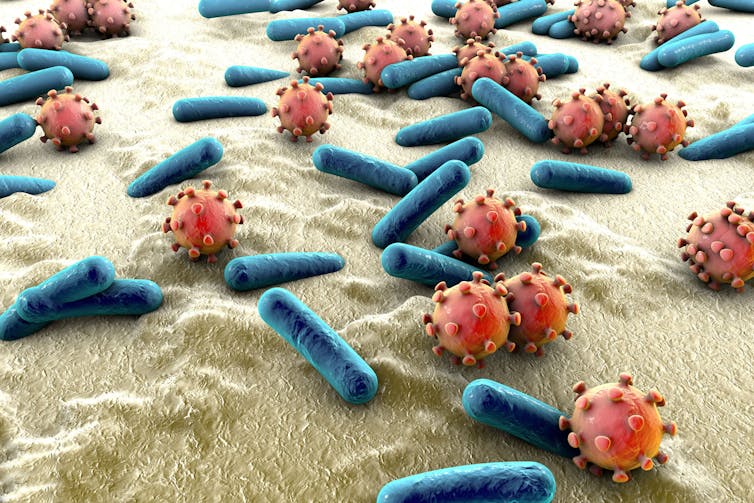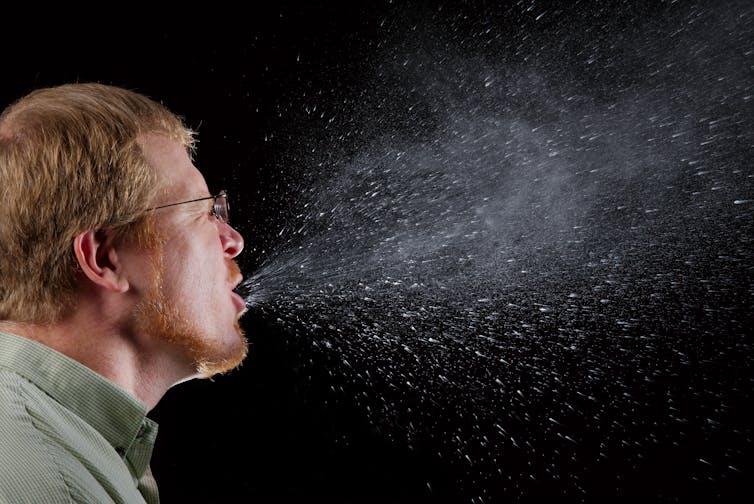
Curious Kids: Do I have to wear a jacket when it's cold outside?

Carolyn Kaloostian, University of Southern California

Curious Kids is a series for children of all ages. If you have a question you’d like an expert to answer, send it to curiouskidsus@theconversation.com.
Will I get sick if I go out in the cold without a jacket? – Ben P., age 4, South Orange, New Jersey
The answer to this question is: “It depends.”
Cold weather does not get you sick. Feeling chilly because you’re not bundled up does not get you sick.
But being cold – like when you’re outside in wintry weather wearing just a thin shirt – can actually weaken your body and make it easier for you to get sick. Researchers have shown that cold temperatures weaken your immune system and thus your ability to fight off infections. In fact, the longer time you spend in the cold, the higher your risk of actually getting sick.
To get sick, though, you still must be exposed to a germ. So it’s key to avoid coming into contact with germs as well. Unfortunately, that’s easier said then done.

There are over 200 viruses that can cause a cold. These viruses are all around us. In the wintertime, people often stay indoors and are closer together in general, which encourages the spread of viruses.
One called rhinovirus is responsible for around a third of the cases of runny noses and congestion, but can also cause more serious lung diseases. There’s another group of germs, called human coronaviruses, that can make you sick. The new virus named 2019-nCoV is one of these.
The cold, dry weather does play a role in winter sniffles, because it can strengthen these virus invaders. For example, viruses survive longer and multiply faster in the cooler regions of your nasal passages.
Cooler temperatures also tend to weaken your body’s antiviral immune responses. In fact, a fever helps your body warm up and invigorates your immune system cells to fight infection.

Viruses live in the environment all around you. They’re on surfaces such as doorknobs. They’re in the air after someone sneezes. The most common way to expose yourself to these germs is by inhaling virus-filled air or touching your eyes or nose with dirty hands.
The best way to avoid catching a cold is to wash your hands as often as possible, avoid anyone who is clearly sick and keep your immune system strong. Tips for boosting your body’s immune power include eating a well-balanced diet, having a healthy sleep routine, balancing stress with enjoyable activities and keeping warm to minimize susceptibility to infection. Don’t forget vaccines are available to help keep you from getting sick with certain viruses, including influenza.
If you do catch a cold, it is best to rest, drink plenty of water and contact your doctor for any worsening symptoms. And if you go outside in the cold, be sure to bundle up and try to stay warm.
Hello, curious kids! Do you have a question you’d like an expert to answer? Ask an adult to send your question to CuriousKidsUS@theconversation.com. Please tell us your name, age and the city where you live.
And since curiosity has no age limit – adults, let us know what you’re wondering, too. We won’t be able to answer every question, but we will do our best.![]()
Carolyn Kaloostian, Clinical Assistant Professor of Family Medicine, University of Southern California
This article is republished from The Conversation under a Creative Commons license. Read the original article.

















